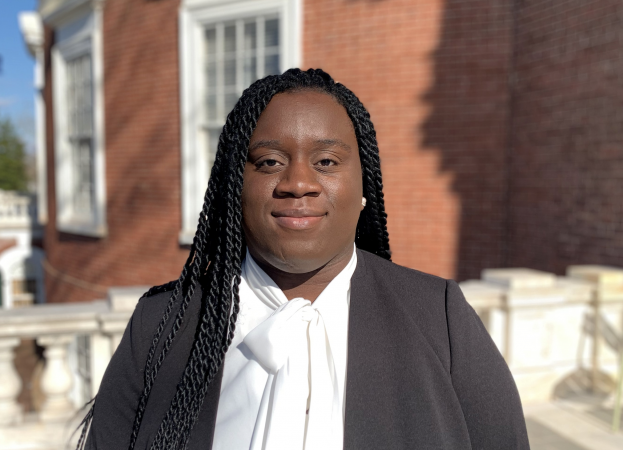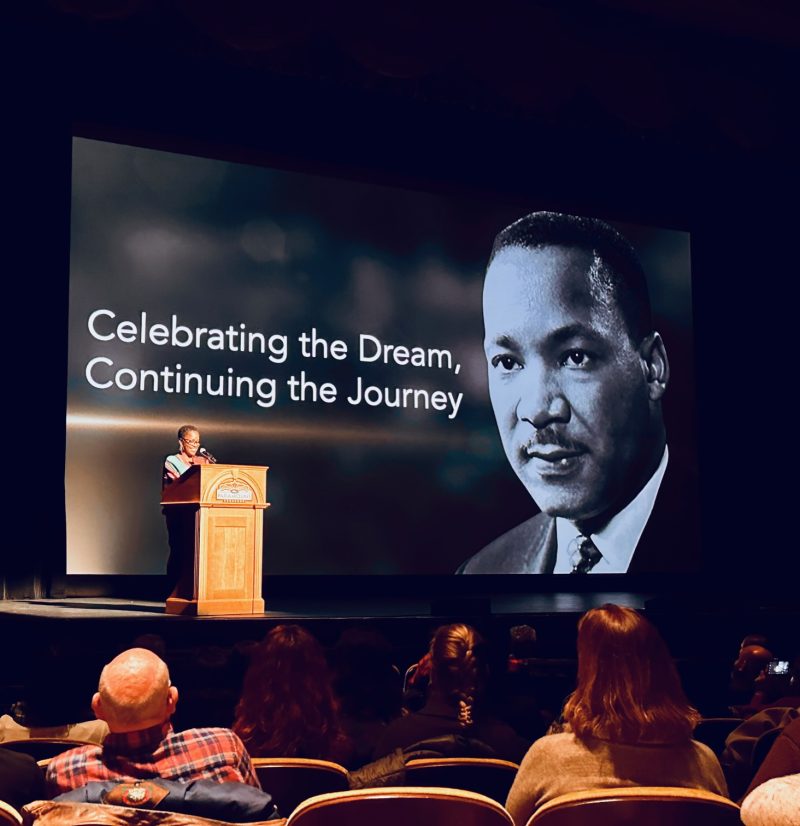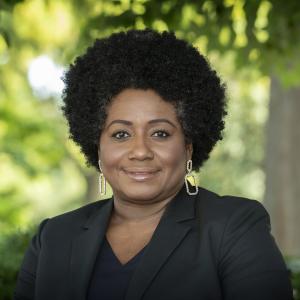MSDS Student Reflects on Community MLK Celebration Event
 It was my pleasure to co-host and represent the School of Data Science at this year’s Community MLK Celebration Keynote Event at The Paramount Theater. The keynote speaker was Dr. Yaba Blay, and her speech was titled “Celebrating the Dream, Continuing the Journey.”
It was my pleasure to co-host and represent the School of Data Science at this year’s Community MLK Celebration Keynote Event at The Paramount Theater. The keynote speaker was Dr. Yaba Blay, and her speech was titled “Celebrating the Dream, Continuing the Journey.”
Dr. Blay is a public speaker, writer, scholar, and activist who has pioneered several social movements, including Locs of Love, #PrettyPeriod, and #ProfessionalBlackGirl, her multi-platform digital community. A renowned thought leader on Black racial identity, Dr. Blay’s work centers on racism, colorism, and body/beauty politics with a particular focus on Black women and girls.
It was my honor to introduce Dr. Blay and hear her thoughts on how we can continue the work of Rev. Dr. Martin Luther King, Jr., and truly honor and celebrate his life.
In her remarks, Dr. Blay highlighted some of the ways that Rev. Dr. King Jr.’s image had been altered over time. He is now viewed as a symbol of peace, but during the Civil Rights Movement, he was seen as a threat to the American status quo, so much so that he was assassinated. He was considered an agitator and made many powerful people angry; however, he and other Civil Rights activists were right to fight for freedom, equality and justice, despite many violent attempts to thwart them.
Today, almost 55 years after his assassination, and just 23 years after Martin Luther King, Jr. Day became a holiday in all 50 states, some state governments are beginning to push back against teaching students about Dr. King’s work. In addition, several states have begun to enact legislation that bans teaching Critical Race Theory in public schools. Many legislatures have censored topics like slavery and the Civil Rights Movement. However, these events are some of the most central and consequential moments in America’s history. Dr. King’s work isn’t theoretical; it’s a material part of our shared history and erasing it is no different from removing the American Revolution from classrooms.

I believe that topics like the history of racism in America are crucial to education and discourse; rather than creating division as certain politicians claim, I feel it offers students opportunities to become more compassionate and understanding of the injustices that many Americans have faced and continue to face.
I am grateful to have had the space for robust conversations and debate around fairness, justice, and morality as it relates to my career in the SDS Data Ethics course taught by another amazing activist, Dr. Renée Cummings. It’s important that we continue to discuss difficult topics – even if they cause fear, anger, or other unpleasant emotions – if we are to gain the perspective necessary to continue Dr. King's legacy and work.


